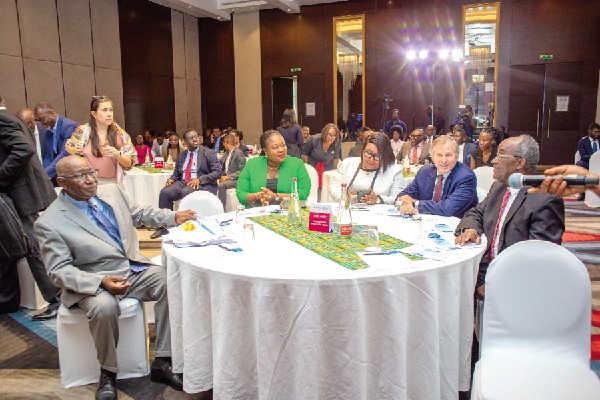In the wake of the harsh economic environment, businesses are to prioritise measures that will help to revive their fortunes and not give up.
Attorney-General and Minister for Justice, Godfred Yeboah Dame, who gave the advise said plans to recover when in distress is preferable to liquidation.
He explained that immediate liquidation could harm both the private sector and the broader economy adding that the Corporate Insolvency and Restructuring Act (CIRA), 2020 (Act 1015) is a key tool that offered a modern legal framework to help distressed companies continue operations while exploring recovery options.
He gave the advise in a speech read on his behalf by the Deputy Attorney-General and Minister for Justice, Diana Asonaba Dapaah, at the opening of a two-day workshop dubbed: “Business Rescue 101” in Accra last Thursday.
Organised by the Ghana Association of Restructuring and Insolvency Advisors (GARIA), the training was on the theme: “Navigating Successful Business Rescue.”
It was supported by the International Finance Corporation IFC, a member of the World Bank Group with funding from the Swiss State Secretariat for Economic Affairs (SECO).
It equipped insolvency practitioners, lawyers, chartered accountants, corporate executives, credit officers, and senior management professionals with the requisite tools to handle distressed companies and guide them towards recovery.
Mr Dame said while the Companies Act of 1963 (Act 179) and the Corporate Bodies Official Liquidation Act of 1963 (Act 187) were groundbreaking for their time, today’s business environment requires a more adaptable approach to corporate distress.
“We must recognise the importance of rescue culture that prioritises restructuring over liquidation and so a company's initial response to any distress should not be immediate liquidation as this can negatively impact both the private sector and the broader economy.
Instead, skilled professionals should prioritise saving businesses through very well structured efforts,” he said.
Knowledge gap
The President Of GARIA, Felix Addo, explained that the insolvency landscape in Ghana has been evolving, with increasing recognition of the need for robust insolvency practices to ensure economic stability and growth.
He said effective insolvency management was crucial to maintain the confidence of investors, creditors, and the business community, however, there was a significant gap in the knowledge and application of insolvency laws and practices among stakeholders.
According to Mr Addo, the initiative forms part of a broader effort to upskill practitioners that were grandfathered under the transitionary arrangements necessary for the operationalisation of Corporate Insolvency and Restructuring Act (Act 1015).
He added that the training was, therefore, situated as an institutional building project to support efficient implementation of the relatively new insolvency regime in Ghana.
Effective rescue mechanisms
The Senior Country Manager for IFC, Kyle Kelhofer, said Ghana’s economy is confronted with unprecedented challenges causing businesses in varied sectors to grapple with financial pressures, market volatility, and external shocks.
He said the rising number of businesses in financial distress underscores the need for well-structured insolvency processes and effective rescue mechanisms.
That, he said will provide a lifeline for viable businesses, offering companies the chance to restructure, better navigate challenges, recover, and continue their contribution to sustainable growth of the economy.
He added that efficient and effective liquidation procedures are also important for non-viable businesses, as they allow for assets to quickly return to productive use in the economy.
